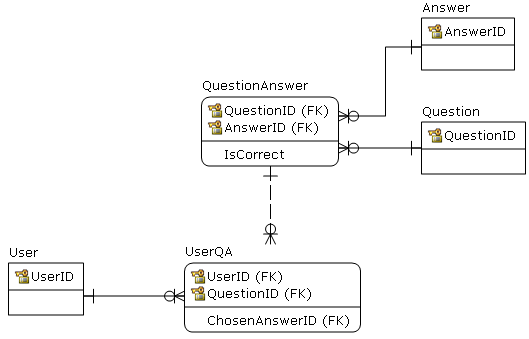I have one MySQL table which contains:
- a question
- 4 possible answers separated by a comma
- a number (0-3) representing the correct answer.
- unique id
with about 2000 entries.
I also have another table of users. The goal of each user is to solve all of the questions on the website.
I need to be able to randomly pick about 30 questions that the user hasn't answered yet.
How do you suggest I should store data about the questions the user has already solved?
At first I thought about a table with | user_id | - | question_id | (so each time the user solves a question correctly a new row will be added), but I don't know how I'll be able to pick 30 rows that he hasn't answered yet..

